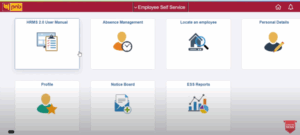Top 3 Secret To Building Wealth

You might read stories about overnight successes in business or investing and wonder why you can’t get rich like they do. In truth, building wealth is an achievement that almost anyone can do. You don’t need a large income or significant assets to start. All you need is the right plan and a mindset that helps you to focus on the future. Here are a few tips to keep in mind as you prepare.
1. Streamline Your Cash Flow
Even if you don’t run a business, you may have problems with your cash flow that make it harder for you to set aside money or save. Cash flow is the relationship between your income and your expenses, based on quantity and time. The key to keeping your cash flow in sync is to balance bills with income. You may need to consider cutting back on some of your expenses, rescheduling a few bills and finding ways to increase your income.
- Get Your Bills Under Control
Invest the time to track your expenses, down to the dime when you can. If you’re not sure how much you spend on groceries, gasoline, or other incidentals, take a month or two to track them. Look for easy ways that you can trim back, by cancelling subscriptions you don’t use or setting limits on convenience spending. Once you have all your expenses laid out, put them on a schedule with your income. With this approach, you’ll be more consistent about paying your bills, because you set them up to work with your paycheck.
- Consider Supplementary Income
Once you bring your cash flow and your budget into line with your real income and expenses, it’s common to wish you had more income to work with. Fortunately, you may have many opportunities to bring in extra cash here and there. Spend time to improve your skills so that you can apply for a better job. If you need your existing job, consider adding a side hustle or a second job for more income.
2. Control Your Debt
Debt is a common part of personal finance, but it can take over your financial life if you don’t control it. For many people, credit is relatively easy to obtain, but the debt is much harder to eliminate. To get a sense for how much you’re paying on your existing debts, you can make a list of them. Be sure to include the amount of interest and how much you’re paying in principal each month. This information will help you figure out where you’re spending the most on debt servicing.
- Work to Eliminate Debt
Even if you’re making more than you spend right now, eliminating debt can help you increase the amount of money you have available to save or invest. Debts with high interest rates cost more to maintain, so you should consider paying them off first. As you pay off revolving debts such as credit cards, stick to your budget so you don’t run up the balances again. If you can, set aside a certain amount of money for emergency expenses, to decrease the temptation to put everything on a credit card.
- Make Wise Debt Choices
Going forward, you should be selective about incurring debt. You might choose to finance a home or vehicle purchase — but avoid other types of financing. Mortgages and auto loans are secured by the asset, which often means that they have lower interest rates than other debts. In some cases, these loans also have lower interest rates than the gains you could get from investments or savings.
Read More: How to Build a Strong Financial Foundation to Achieve Financial Success
3. Increase Your Savings
Unlike keeping a handful of cash in your wallet, the money you put into savings and investments builds on itself over time. When you put money into a savings account, certificate of deposit, investment or other wealth-building vehicle, you earn a percentage of your money as a return. Money that you don’t have to work to earn is called passive income, and it’s the backbone of building wealth. The more you save, you more you have over time. The trick is to increase your savings and avoid dipping into it as much as possible.
- Designate Different Savings Vehicles
Many people keep different savings vehicles, depending on the goal of each account. For example, you might keep a basic savings account with money you can use for emergencies. If you want to keep your long-term savings separate, you could open a new account or a certificate of deposit. Some savings types limit access to your money, so you should be sure that you won’t need immediate access to certain funds before you lock them up for an extended period.
- Keep Building Savings
Once you get in the habit of saving, you just need to keep it going. Increase your savings whenever you get a raise. Set the withdrawals to come out automatically when you get paid. When you’re ready to start investing, you should consider hiring a financial planning consultant to help.
The road to wealth doesn’t require a big income or an expensive car. You can do it with any extra income, even a little here and there. By following these tips, you can learn to improve your cash flow, minimize your expenses, and start building savings for the future.
For more information on how to build wealth, please see the accompanying resource.
Infographic provided by Skyline Advisors, certified financial advisor

Pranab Bhandari is an Editor of the Financial Blog “Financebuzz”. Apart from writing informative financial articles for his blog, he is a regular contributor to many national and international publications namely Tweak Your Biz, Growth Rocks ETC.






